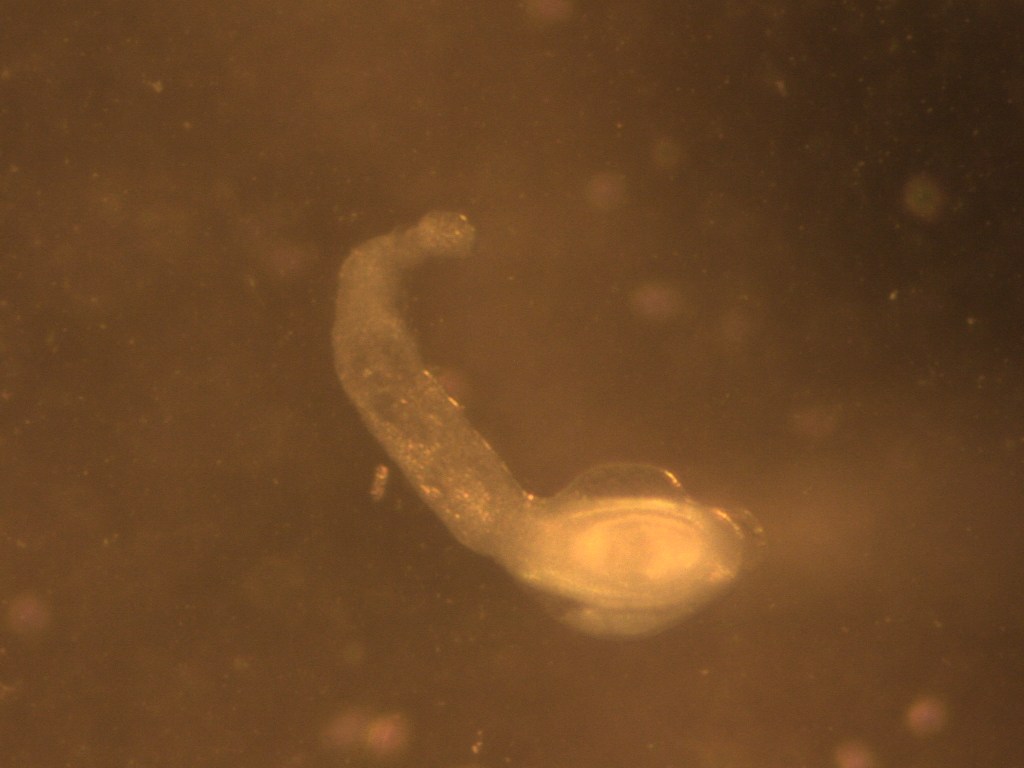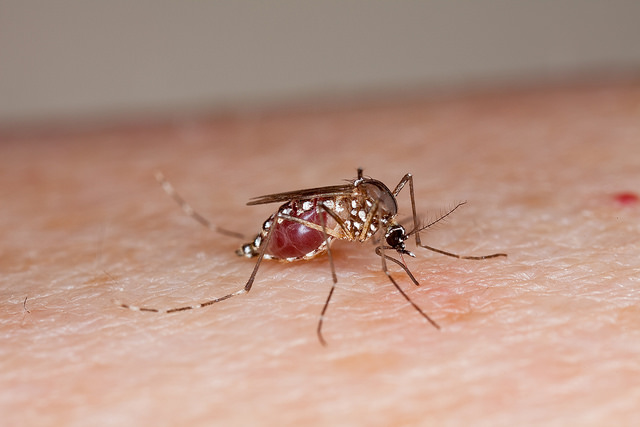

No one wants worms in their feet. But unfortunately, hookworms don’t respect personal boundaries. They will take any chance you give them to burrow into your flesh, enter your bloodstream, and wend their way to your intestines, where they will take up residence for up to five years, stealing your nutrients and sapping your literal lifeblood.
Case in point: the unlucky couple who caught hookworms after a presumably-romantic-at-the-time stroll on a Dominican beach. The poor lad and lass went home to Canada only to find larvae had embedded themselves in their feet.
To an expert in neglected tropical diseases, this would not come as a surprise. Hookworms infect 740 million people worldwide, mostly in poorer countries with subpar sanitation. But they can show up anywhere. The Dominican Republic certainly has them, as does most of Africa, South and Central America, and Asia. And until the early 20th century, large swaths of the United States had them too. In fact, parts of rural Alabama still play host to hookworms.
It’s tempting to say that this couple, along with the many other people in trending stories about naïve Americans and Canadians catching common parasites while abroad, are just paying the price for blundering their way around foreign countries. And hey, we’ll be the first to admit that there’s some of that going around. But before you judge, try Googling as if you were traveling to the Dominican Republic and wanted information about potential health risks.
You’ll probably find plenty of information about the vaccines you should get (mostly hepatitis A and B, rabies, and yellow fever). There will be warnings about the dangers of dengue, schistosomiasis, and malaria. But you’re unlikely to spot anything about hookworms.
Health organizations like the Centers for Disease Control (and even just plain ol’ federal governments) have sites where you can look up pertinent health information for whatever country you’re traveling to, but neither the CDC’s nor the Canadian government’s pages about the Dominican Republic contain anything about hookworm. And this oversight isn’t particular to the DR. Even African countries where upwards of 60 or even 80 percent of people are infected with hookworms don’t seem to carry any warnings to travelers.

This might be because you can’t actually prepare for hookworms before you go. As a traveler, all you can do is wear sandals on the beach, sit on towels, and wash off with soap and water after you touch sand. But if no one tells them in advance, the average person (from a non-hookworm-plagued country) won’t think to wear shoes on the beach. Most American seasides are free of hookworms, so we’re not trained to think about these things before we hit the waves.
But the fact that hookworms are so easy to prevent is exactly the reason we should be warning people. They’re called a “neglected tropical disease” because they cause so much suffering despite how straightforward it would be to get rid of them. You just have to cough up the cash.
That’s how the U.S. virtually eradicated the pests from the South in the early 20th century. The Rockefeller Sanitary Commission for the Eradication of Hookworm Disease implemented a grand plan that involved mapping the geographic spread of hookworms, treating patients via mobile health units, and educating citizens about how to properly dispose of their sewage. That’s how hookworms spread: human waste.
The problem in the South was was that people were too poor to afford plumbing, so they used outhouses or holes in the ground to do their business. But it’s generally a hilly, rainy place, and if you don’t bury your poop properly, it just gets spread around the next time it pours. That spreads the hookworms, too, and anyone walking around without shoes is liable to end up with them.
According to an excellent documentary from PBS, it’s possible that the stereotype of the lazy, laid-back Southerner comes from rampant hookworm infection. The parasites steal your nutrients, including iron, leaving you fatigued and bloated. The picture of poor country folk sleeping all day and neglecting their chores was pervasive because it was, at least to some extent, true—but only because they were all literally losing energy to the giant worms living inside their guts.
Other countries have adopted the Rockefeller Sanitary Commission’s methods to some success, but hookworms persist in many places simply because no one provides the funding to solve the root of the problem. Drugs to treat the parasites are cheap and easy to hand out. It’s a bigger project to provide proper sewage systems for the poorest parts of our planet. The Gates Foundation has pledged many millions to fighting the disease, as has the Clinton Global Initiative. But because the problem is so widespread, it will probably take many years before we see any change in the prevalence.
In the meantime, travelers apparently need to do their own outside research on potential disease risks while on holiday. Take a few minutes to Google the country you’re visiting. Ask the internet what kinds of diseases tend to crop up in that area. It’s often easy to avoid contracting infections in the first place—if you’re prepared.
Remember: the world is not necessarily a safe place. You might feel smart and savvy for finding a stealthy money belt and scoping out the most authentic local hangouts, but it’s all for naught if you neglect necessary additions to your basic hygiene routine. Maybe you should wear shoes on the beach. Maybe you shouldn’t eat the shellfish. Maybe you need to scrub your fresh produce lest you accidentally consume a slug with a brain parasite inside it. Do your homework before you go gallivanting off to some far-flung corner of the world, and don’t assume that anyone will warn you about the potential dangers.







